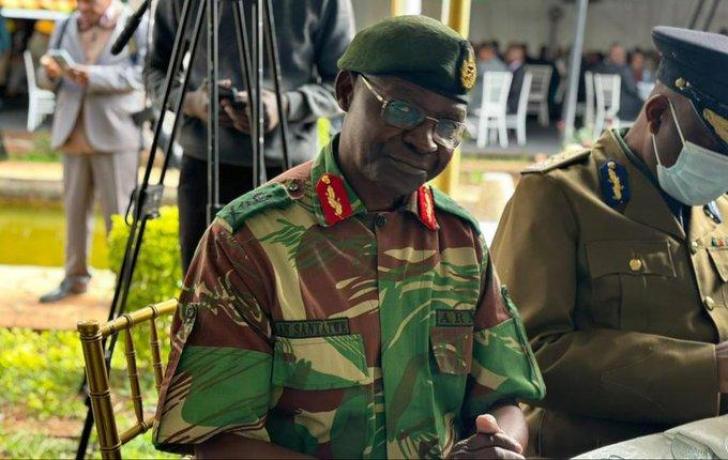Opinion / Columnist
Lt Gen Sanyatwe dilemma revealed
28 Mar 2025 at 12:00hrs |
0 Views

After the unexpected removal of Lieutenant-General Anselem Sanyatwe as commander of the Zimbabwe National Army (ZNA) by President Emmerson Mnangagwa, the riled general faced tough choices: accept a 'promotion' to Sports Minister or risk severe consequences by rejecting the offer.
Sanyatwe's redeployment is seen as part of the intensifying power struggle between Mnangagwa and Vice-President Constantino Chiwenga, as the battle for succession within ZANU-PF escalates. With tensions rising, Zimbabwe appears to be on the verge of a political crisis.
Mnangagwa's move to redeploy Sanyatwe is widely viewed as an attempt to consolidate control over the military, which remains a crucial power broker in Zimbabwean politics. Sources indicate that some within Chiwenga's military-aligned camp urged Sanyatwe to refuse the ministerial post, a decision that could have plunged the government into deeper turmoil.
After extensive deliberations, Sanyatwe ultimately accepted the position, despite opposition from his hardline allies. Refusing the appointment would have posed serious risks, including accusations of insubordination or even mutiny - offences that could lead to court-martial under military law.
In Zimbabwe's Defence Forces, disobeying a direct order from the Commander-in-Chief is a serious breach of military discipline. Military experts suggest that refusal could have resulted in various consequences, from administrative reprimands to full court-martial proceedings. Factors such as the lawfulness of the order, military regulations, and the broader political context would have influenced the outcome.
With Sanyatwe's acceptance of the ministerial role, attention now turns to how this reshuffle will impact the already fraught political landscape in Zimbabwe. Observers warn that the power struggle within ZANU-PF could spill further into government operations and the streets, as tensions mount ahead of the planned March 31 protests.
Sanyatwe's redeployment is seen as part of the intensifying power struggle between Mnangagwa and Vice-President Constantino Chiwenga, as the battle for succession within ZANU-PF escalates. With tensions rising, Zimbabwe appears to be on the verge of a political crisis.
Mnangagwa's move to redeploy Sanyatwe is widely viewed as an attempt to consolidate control over the military, which remains a crucial power broker in Zimbabwean politics. Sources indicate that some within Chiwenga's military-aligned camp urged Sanyatwe to refuse the ministerial post, a decision that could have plunged the government into deeper turmoil.
In Zimbabwe's Defence Forces, disobeying a direct order from the Commander-in-Chief is a serious breach of military discipline. Military experts suggest that refusal could have resulted in various consequences, from administrative reprimands to full court-martial proceedings. Factors such as the lawfulness of the order, military regulations, and the broader political context would have influenced the outcome.
With Sanyatwe's acceptance of the ministerial role, attention now turns to how this reshuffle will impact the already fraught political landscape in Zimbabwe. Observers warn that the power struggle within ZANU-PF could spill further into government operations and the streets, as tensions mount ahead of the planned March 31 protests.
Source - x
All articles and letters published on Bulawayo24 have been independently written by members of Bulawayo24's community. The views of users published on Bulawayo24 are therefore their own and do not necessarily represent the views of Bulawayo24. Bulawayo24 editors also reserve the right to edit or delete any and all comments received.
Join the discussion
Loading comments…































